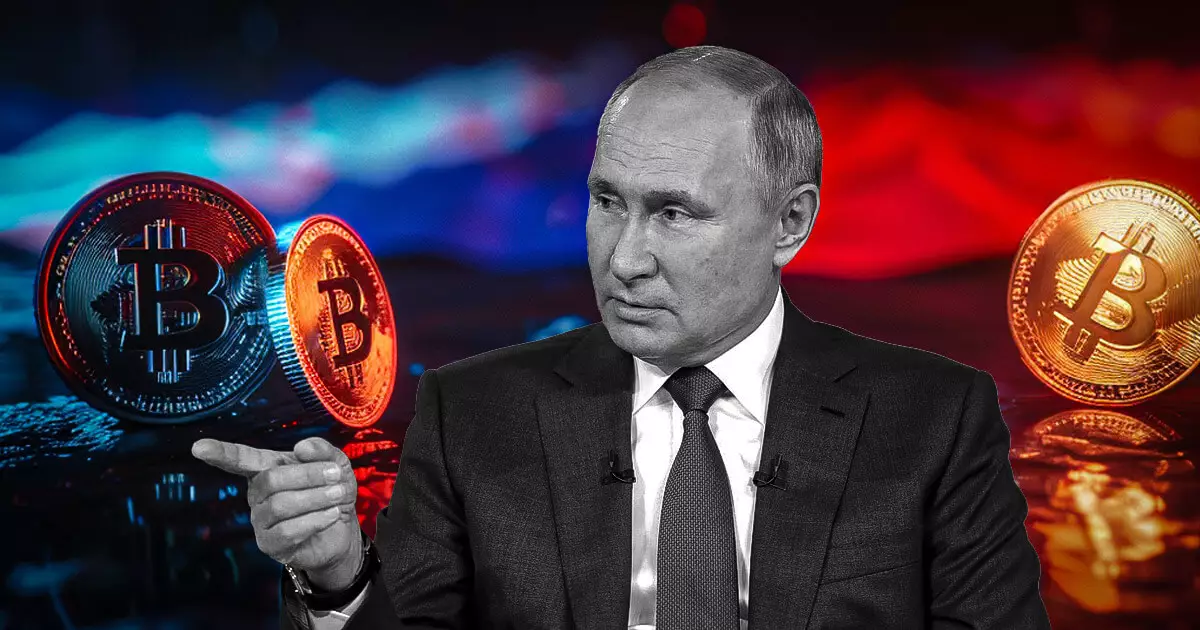In a bold declaration during the Investment Forum held in Moscow on December 4, Russian President Vladimir Putin asserted the inevitability of Bitcoin’s prominence in the financial landscape. He positioned digital currencies not merely as alternatives but as essential instruments for rectifying inefficiencies in global finance and fostering economic stability. This proclamation marks a significant shift in how digital assets are viewed on the world stage, especially considering the backdrop of increasing geopolitical tensions and economic sanctions.
Putin voiced stark criticism of the United States’ monopolization of the dollar, arguing that this dominance enables the US to impose its political will on other nations by controlling access to its currency. His remarks were particularly pointed as he reflected on the freezing of $300 billion in Russian reserves by Western countries following the invasion of Ukraine. This action has served as a wake-up call, prompting Russia and other nations to explore financial alternatives that provide immunity from external control. In this context, Bitcoin emerges as a viable solution for many countries seeking to safeguard their economic sovereignty.
Amidst this backdrop, Russia’s recent legislation recognizing cryptocurrencies as property underscores a strategic pivot toward digital assets. This new legal framework not only offers tax relief for electronic transactions but also exempts crypto mining and trading from value-added tax. This initiative reflects a broader commitment to nurturing innovation within Russia’s financial sector and highlights a calculated response to external economic pressures. By establishing a robust framework for cryptocurrencies, Russia aims to build resilience against sanctions through greater integration of digital currencies.
Moreover, the role of cryptocurrencies in facilitating financial transactions during the ongoing conflict in Ukraine cannot be overlooked. Both Russian and Ukrainian citizens have turned to digital currencies as a means of circumventing traditional banking systems, which have been hampered by sanctions and conflict-related disruptions. This has resulted in a burgeoning ecosystem of crypto users who rely on these methods to manage their finances amid turbulent times. Additionally, discussions at recent BRICS summits have further heralded the potential of digital currencies in enhancing cross-border financial transactions, positioning them as significant tools to challenge the hegemony of traditional banking systems.
Putin’s enthusiastic endorsement of Bitcoin and emerging digital technologies sharply contrasts with recent initiatives from the United States. With the anticipated pro-crypto stance of the incoming US administration, there may be significant policy shifts that could enhance the regulatory environment for cryptocurrencies. Such changes could incite a ripple effect, encouraging other countries to adopt more favorable positions toward digital currencies. As nations grapple with the implications of a multi-currency world, the influence of Bitcoin as a formidable asset class continues to grow, marking a transformative era in global finance.
Putin’s remarks signal a resounding call for embracing the future of finance, one that could see a shift away from traditional dollar dominance toward a more decentralized financial ecosystem characterized by the rise of cryptocurrencies.








